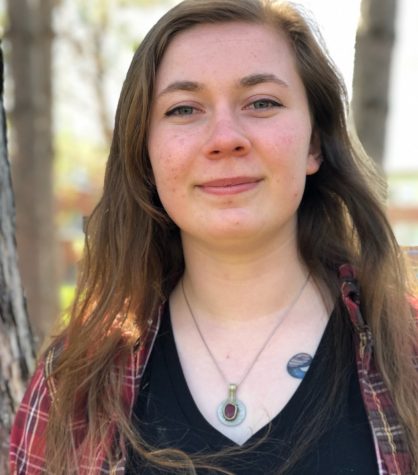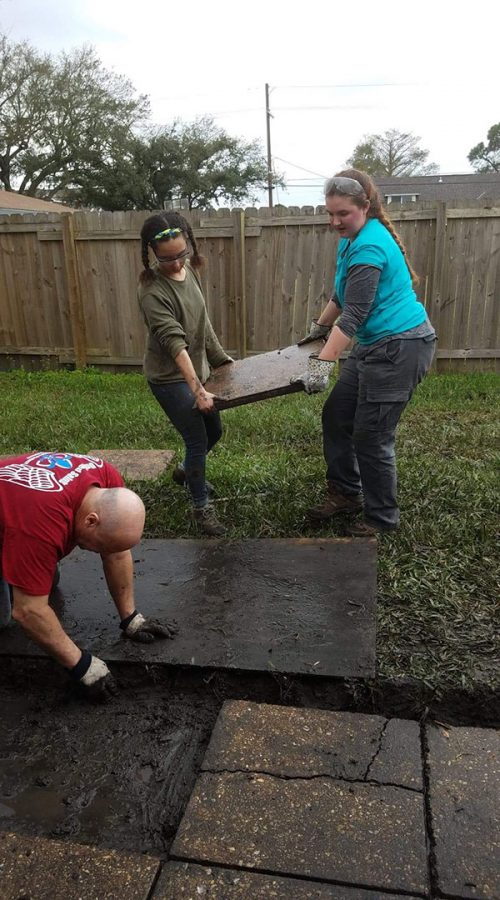BAB group encounters some harsh realities in the Big Easy
NVU- Johnson had winter break from Feb. 25 to March 1, and while many students went home, worked, or went on vacation, some dedicated this time to helping people in need. Badger Alternative Breaks, or BAB, sent two service trips down South, one of which went to Louisiana.
The trip focused on natural disaster relief, including tornados and residual damage done by Hurricane Katrina in 2005. The majority of the week was spent rebuilding the home of a lady who had her house destroyed by a tornado, and then, when it was being rebuilt the first time, went up in flames. She lost almost everything and had been displaced for years.
The group worked with the United States Recovery Project to learn how to do everything and have a plan for what was happening. USPR is a non-profit group out of Central City, New Orleans that specializes in rebuilding homes for people in need. Students got to work with USRP members, got to know them and be inspired by them through the projects. “They gave us nice pep talks, like, ‘this work that you’re doing really is making a difference,’” said Rebecca Bingham, the leader of the trip as well as participating member of six trips. “I think the interaction with them, doing the actual service and being able to see that, wow, we are making strides to getting this person into her home. I think that would be my favorite part.”
Students learned how to use the tools and carry out all the tasks they were assigned, getting a lot accomplished in the short time they were there installing sheetrock, painting and doing landscaping. “We did a lot of sanding and mudding,” says Bingham, “And it was tiring at times, but the overall achievements that we made made it so worth it. It was incredible.”
Many of the skills they learned were not only helpful to them at the time, but could be helpful in the future if they ever want to remodel or fix up their own home. “I learned how to fix/redo a patio so you can divert water away from the house if it’s having flooding issues,” said Becca Palmer, a second year participant in the program. Even if participants weren’t familiar with how to do certain tasks or use certain tools, there were people around to help them so everyone could help as much as possible.
Bingham describes the experience as being a tedious and slow moving process at first, but once the end of the week rolled around it was a great feeling to see all the work they had done. “Being able to see that progress and being able to see the joy of my participants and say, ‘Wow, we got two rooms primed and ready to go for the next group to take and paint, so then it’s ready to go!’ I think that was my highlight. Being able to see the accomplishments they made and [I] made.”
Of course, the group also got to do some exploring while they were there, and got to experience a lot of culture, especially because they were there during Mardi Gras season. They watched two Mardi Gras parades and got to try some local foods including alligator.
Group members also got to know each other on a deeper level, as well as themselves, and developed teamwork and cooperation through the work. “It was really great to see how well the group came together and supported everybody,” said Bingham, “I knew they were an incredible group of people, but just seeing them all come together and support everybody, I think that was incredible.”
On the last day of the trip, they worked outside, cleaning up the streets. “They had a problem with mugging in the certain spot where we were, and we would find backpacks and purses and stuff like that,” says Bingham. The group picked up litter and got rid of debris that could be used as hiding places for muggers, making the streets a little safer as well as cleaner.
The trip gave participants a new perspective as well, and opened their eyes to some harsh realities. Palmer talked about the shock that hit the group when they learned about all the hardships the homeowner and the community had been through. It made her think about how different her life was living in Vermont and how it’s easy to take things for granted. “Seeing how it affects them down there definitely changes how you would think about your own home,” she said. It also put into perspective how desperate disaster relief is needed and how thinly the government and other organizations are stretched. She described walking around and seeing how people were still living, even all these years after Katrina hit, and how people had just moved on. “A lot of neighborhoods have been forgotten,” Palmer said. “Going down there 14 years later and seeing neighborhoods that are completely abandoned and ruined and untouched years later is pretty surprising.”

Sophomore, Journalism
Grew up in Salisbury, NH
Fall 2018 - Present
The closest I have come to fame so far is once, at a Weird Al concert, he went...



